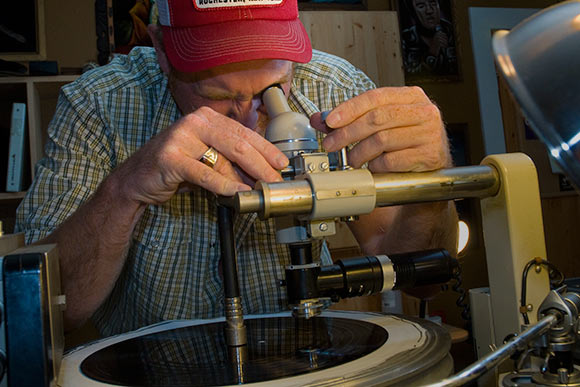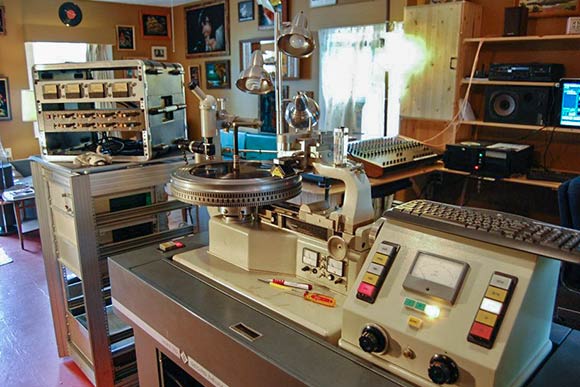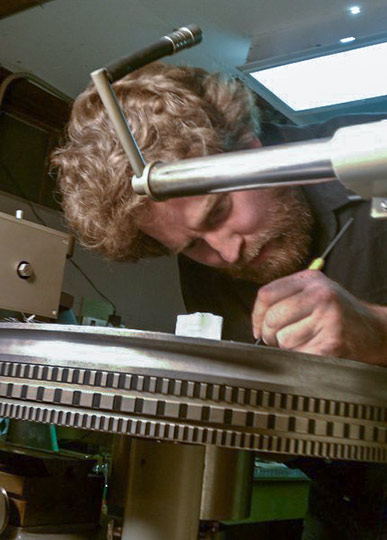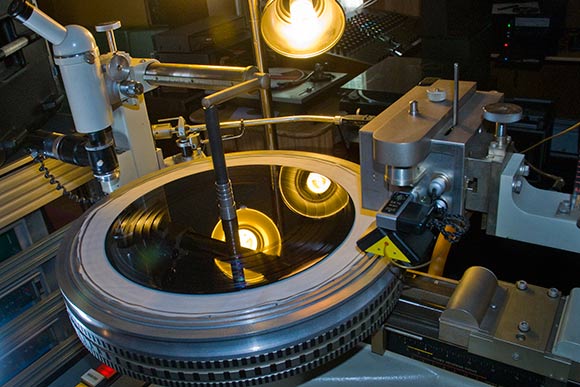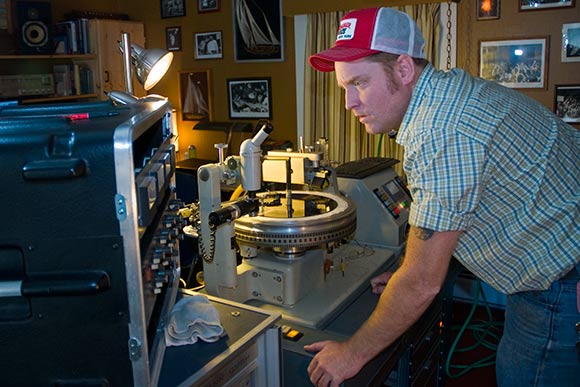unique vinyl record mastering engineer moves into 78th street studios
Considering only about 30 people across the nation do what Clint Holley does, Cleveland is very lucky to have him and his small business Well Made Music.
"I'm the guy who takes your audio and transfers it to a record for the first time," says the vinyl mastering engineer. "I make an acetate or a lacquer."
He heretofore operated out of his home, but will be moving into 78th Street Studios next month. He's been sprucing up the 1,200-square-foot space since July, along with digital mastering engineer Adam Boose of Cauliflower Audio. While the two will share the space and often collaborate on projects, their businesses are separate entities.
Vinyl is an odd business. While sales are soaring (some eight million vinyl records were sold last year, up nearly 50 percent from 2013 according to the Wall Street Journal), the machinery used in their production is as rare as the people who know how to operate it. This is doubly true for Holley as he owns two mastering lathes.
"I got in before the vinyl craze started and got really lucky with my first machine. I paid around $28,000 for it five years ago. Now they're $50,000 to $60,000," says Holley. "Nobody knows how many are still in existence. It's very difficult to get into this business now."
The lathes Holley uses were produced between the 1950's and 1980's. There were only about 500 made and their use is mandatory in the vinyl record making process. Holley's models were manufactured by the legendary Georg Neumann company in Germany and he uses them to machine the first record, which becomes a template of sorts.
"I make the first one," says Holley. "Every one after that is an exact copy of what I make. The pieces that I make become the stampers."
When he's finished with them, Holley's stampers go to a studio such as Gotta Groove Records and are used in special presses, rare in their own right, to stamp record after record.
The boom in vinyl was one impetus for Holley's move to 78th Street, but it wasn't the only one.
"It's kind of a solitary job. You work by yourself," and when you work from home you end up spending a great deal of time there. "You start to feel a little crazy after a while," says Holley. "I thought it would be good to get around some creative people."
He also sees his operation as part of a loftier goal for Cleveland, the creation of a music production infrastructure, which goes far beyond good musicians and hip concert venues.
"In cities like Nashville or New York or Los Angeles, they have an infrastructure to get people to produce music. They have studios and production facilities. Cleveland is starting to build that infrastructure," he says, tagging his business, Gotta Groove and area studios.
"We're looking for a way to bring all these people together and put us on the map."


